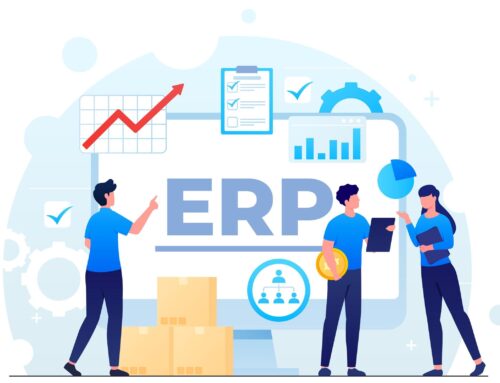Managing uncertainty due to fluctuating demand and supply of the global market is a challenging task for most companies. With markets being increasingly volatile and the growing vulnerability of production and logistics processes, businesses that do not have a full grasp of their supply chain can quickly find themselves at a disadvantage. To survive the challenging market, businesses must operate with agility to adapt to the constantly changing conditions of the global economy, but how is this achievable? Read on to find out three ways on how businesses can build an agile supply chain with Enterprise Resource Planning (ERP).
Improve Supply Chain Management with ERP
For effective Supply Chain Management, businesses must be able to track important information that helps ascertain the level of demand. If a business lacks clarity about upcoming demand, it is unlikely to plan for its order fulfilment process. A delay in one segment of the supply chain can then cause further delays that might lead to even more issues down the whole supply chain pipeline. This is why, employing the use of an ERP Information system is crucial because it reduces human error from manual data entry and ensures that only accurate, up-to-date information is shared within a company. This can help businesses avoid costly logistical mistakes and alert the relevant teams to take necessary actions should discrepancies be identified.
Another value in using an ERP system is its ability to maintain an approved supplier list that can be activated at any given time. This allows a business to quickly appoint another supplier should an existing one fail to meet its needs and requirements. More importantly, an ERP system is an advanced tool that generates insightful reports that helps one analyse the company’s transactions and identify any problematic areas in the supply chain that require improvements.
Agile Supply Chains Quickly Respond to Changes in Demand
An agile supply chain is simply defined as an ability to quickly respond to changes in demand, customer preference, and industry transformation. For supply chain companies to achieve such efficient management, integrating an ERP system in the wholesale distribution process is necessary to help them remain sensitive to marketplace demands and changes, as well as handle any unpredictable occurrences with a more strategic approach.
Having an ERP system in place can also increase visibility across your entire supply chain and ensure that businesses can make better purchasing decisions to improve profitability. For example, an agile supply chain that is optimised with ERP software is more likely to help a company identify its best-selling and more profitable products, and consequently to make informed decisions for increasing profit margins. Additionally, an agile supply chain with accurate and timely reporting is useful for managing costs and budgets because a company will be able to identify problem areas to eliminate.
Optimise Inventory Management and Forecasting
Inventory Management throughout the supply chain has always been a complex logistical undertaking. But with an ERP system, a company can have a more holistic overview of its inventory and warehouse operations. Essentially, an ERP system is built for handling complex inventory tracking and sales order processes. It is useful for mitigating overstocking and stock-out situations with accurate forecasting of customers’ demands and popular products to ensure that the company will always have enough stocks to ensure that its operations is not disrupted, and the company’s profitability is improved on.
One of the biggest benefits of having an agile supply chain is that companies can consistently achieve customer satisfaction with fast fulfilment, and reduce logistical costs such as warehousing fees, labour wages, and shipping costs.
Ready to introduce an ERP system to build an agile supply chain that can help you quickly respond to market demand? Contact NaviWorld to find out how you can successfully implement ERP software. NaviWorld will recommend the best-fit solution and implementation method based on your current challenges and requirements. Our solutions offer industry-specific capabilities for many industries, some of which include the likes of distribution, manufacturing, public sector, retail, and services.




